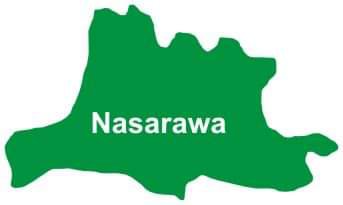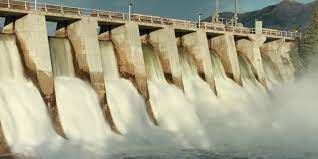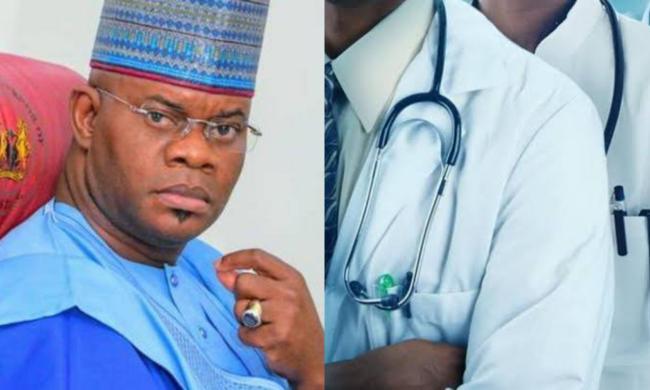The release of water from the Lagdo Dam in Cameroon is said to be a normal reservoir operation, but this operation comes with its dose of pains, particularly in Nigerian states on the downstream of River Benue. Meanwhile, the Nigerian government is being accused in some quarters of failing its citizens by refusing to build a buffer dam to curb the disaster said to be precipitated by the lack of it. LADESOPE LADELOKUN writes on Nigeria’s flood crisis and the need by the Nigerian government to be alive to its responsibilities
Amid pains of the cataclysmic floods said to have washed away thousands of houses, hectares of farmland and property estimated at billions of Naira in 2022, the Director-General of the Nigeria Emergency Management Agency (NEMA), Mustapha Ahmed, had, like the Biblical Noah, warned of worse flooding in 2023 if necessary precautions were not taken. With the release of water from the Lagdo Dam in northern Cameroon on August 14 before it was halted on August 28, as confirmed by the Nigeria Hydrological Services Agency (NIHSA), fresh fears, Sunday Telegraph gathered, are brewing in 13 flood-prone states in the country.
According to the Director General of NIHSA, Clement Nze, the release of excess water from the Lagdo Dam is a normal reservoir operations to avert a possible collapse of the dam, noting that water releases are integral to keeping dam integrity.
Sunday Telegraph reports that Cameroon releases water from the Lagdo Dam, which is located on the Benue River in the Niger Basin, annually, leaving parts of Nigeria flooded. Already, the National Emergency Management Agency (NEMA) had issued flood alerts, advising residents of low plain areas in some states that might be affected by the opening of the dam and floods to move upland. The states listed by the agency were Rivers,Edo, Delta, Niger, Enugu, Anambra, Bayelsa, Kogi, Kebbi Adamawa, Taraba, Benue and Nasarawa.
Meanwhile, NEMA Lagos territorial coordinator, Ibrahim Farinloye had hinted during the week of a windstorm moving toward Nigeria from Cameroon. The wind, he said, would get to Lagos State on Sunday (today) or Monday, stating that parts of Nigeria that will be first hit are Gombe city in Gombe State; Potiskum and Gashua in Yobe State and Jalingo in Taraba State. “The wind movement will precipitate heavy rainfall. September will be wetter than August.
We are looking at serious rainfall in September up till mid-October,” he said. According to NEMA, 662 lives were lost to flooding last year, 3,174 suffered injuries and 2,430,445 were displaced across the country. Also, the immediate past Minister of Humanitarian Affairs, Disaster Management and Social Development, Sadiya Farouq, put the value of economic damage at N4.2 trillion. In a chat with Sunday Telegraph, an environmentalist, Jide Folarin, says flooding erects a brick wall on Nigeria’s road to achieving the global sustainable development goals.
“Look, the sustainable development goals are simply global goals for achieving human and environmental development by 2030. When you look at the 17 development goals, flooding has directly affected nine. It has, for instance, affected the drive to eradicate poverty and hunger You can add providing clean water and sanitation. There’s no denying the fact that flooding has has badly affected Nigeria’s development goals, especially when you narrow everything down to environmental and economic targets.
Annual Tragedy
In 2021, the Nigerian Hydrological Services Agency, (NHSA), had predicted that 27 states – Abia, Akwa-Ibom, Anambra, Bauchi, Bayelsa, Benue, Cross-River, Delta, Ebonyi, Edo, Gombe, Imo, Jigawa, Kaduna, Kano, Kebbi, Kogi, Kwara, Lagos, Nasarawa, Niger, Ogun, Oyo, Rivers, Sokoto, Taraba and Zamfara, were at a huge risk of floods. That same year, NEMA warned Lagos residents to observe safety precautions because floods had submerged many parts of the state with about 4,000 residents displaced.
Speaking at the unveiling of the 2021 annual flood outlook by the Nigeria Hydrological Services Agency, NHSA, NEMA’s former head, Muhammadu Muhammed, was quoted as saying the number of those affected by floods rose from 277,554 in 2019 to 2,353,647 in 2020. In 2012, rivers overflowed their banks, leaving lands submerged in 30 of Nigeria’s 36 states. That incident, reports said, killed over 400 people, displacing 1.3 million others. NEMA said the estimate of the damage caused by that disaster was in the region of $17 billion.
States Reveal Plans
With the release of water from Lagdo Dam and predicted heavy rainfall in September , some states have revealed plans to mitigate the effects in Cross River State, Direc- tor General,Cross River State Emergency Management Agency SEMA Angela Ogeyi Odey told our correspondent in a telephone conversation that the release of water from the Lagdo Dam would likely to affect eleven Local Government Areas of the state. She said that report from National Emer- gency Management Agency NEMA with an- other report from Foreign Affairs Ministry, alert of an impending flood in Cross River State as a result of release of water from the Cameroons.
“For flood, we are fully prepared in Cross River State. We are preparing our man power, training our men on how to evacuate people “We are talking to villagers and the LGAs that are likely to be affected.Place likely to be affected include, Calabar Municipality, Ikom, Ogoja, Yakurr,Yala, Bakassi, Akpabuyo, Etung, Odukpani, Obubra and Biase. “We are getting the relief material ready and flying boats to evacuate people. We have been talking to town criers to spread the news. “We are talking to youths; we are making sure that all hands must be on deck to help our people.
We will not abandon them. After evacuation, we are making plans to keep them. We have hostels, schools and other places to keep them before October”. Mrs. Odey maintained. In Yobe State, Director of Information Services in the state’s Ministry of Information, Husna Ibrahim,had during week said that the Global Flood Awareness System (GloFAS) warned that seven local councils could be flooded in a matter of days, listing Yusufari, Yunusari, Bursari, Geidam, Karasuwa, Nguru and Bade, a border community with Niger Republic as flood-prone councils The seven councils, she said, are under severity three, while others are at levels two and one.
According to her, the flood severity levels have exceeded the normal threshold in the Komadugu/Yobe River Basin, assuring that the government would monitor water levels in the basin, reservoirs and dams constructed across the river. In a statement by Edo State Commissioner of Communication and Orientation, Chris Nehikhare, the Edo State Government, adand predicted heavy rainfall in September, some states have revealed plans to mitigate the effects in Cross River State, Director General, Cross River State Emergency Management Agency SEMA Angela Ogeyi Odey told our correspondent in a telephone conversation that the release of water from the Lagdo Dam would likely to affect eleven Local Government Areas of the state.
She said that report from National Emergency Management Agency NEMA with another report from Foreign Affairs Ministry, alert of an impending flood in Cross River State as a result of release of water from the Cameroons. “For flood, we are fully prepared in Cross River State. We are preparing our man power, training our men on how to evacuate people “We are talking to villagers and the LGAs that are likely to be affected.
Place likely to be affected include, Calabar Municipality, Ikom, Ogoja, Yakurr,Yala, Bakassi, Akpabuyo, Etung, Odukpani, Obubra and Biase. “We are getting the relief material ready and flying boats to evacuate people. We have been talking to town criers to spread the news. “We are talking to youths; we are making sure that all hands must be on deck to help our people. We will not abandon them. Af- ter evacuation, we are making plans to keep them. We have hostels, schools and other places to keep them before October”.
Mrs. Odey maintained. In Yobe State, Director of Information Services in the state’s Ministry of Information, Husna Ibrahim, had during week said that the Global Flood Awareness System (GloFAS) warned that seven local councils could be flooded in a matter of days, listing Yusufari, Yunusari, Bursari, Geidam, Karasuwa, Nguru and Bade, a border community with Niger Republic as flood-prone councils The seven councils, she said, are under se- verity three, while others are at levels two and one.
According to her, the flood severity levels have exceeded the normal threshold in the Komadugu/Yobe River Basin, assuring that the government would monitor water levels in the basin, reservoirs and dams constructed across the river. In a statement by Edo State advised residents in lowlands and riverine areas like Etsako Central, Anegbete and Ilullshi of Etsako East, Esan South East and Agenebode local councils to relocate to a higher plain. “Residents in lowlands and riverine areas are hereby put on notice to be vigilant and relocate to a higher plain.
The state government will provide support to those displaced from their homes by the rising water level. “Because we know this is going to happen, we had to move quickly to ensure that our Internally Displaced Persons (IDP) camps are in good condition and the residents adequately briefed and sensitised,” Nehikhare said. In Lagos, the Lagos State Emergency Management Agency (LASEMA), appeals to residents to be calm as it has put measures in place to mitigate the effects of floods.
According to LASEMA Permanent Secretary Olufemi Oke-Osanyintolu, in line with the paradigm shift from response to effective and efficient disaster management, preparedness and prevention, the state has carried out holistic measures. “These holistic measures include the sensitisation and advocacy in historically affected areas and empowerment of local emergency management committees.
“This also includes strengthening the early warning systems and clearing of drainage and gutters at the state and local government area levels,” he stated. In Nasarawa State , Commissioner of Environment and Natural Resources, Yakubu Kwanta, assured residents of the readiness of the state government to protect them. Apart from sensitizing flood-prone communities, he said the decision to demolish the structures on waterways was in line with the Nigerian Meteorological Agency’s (NiMet) recent prediction of possible flooding in Nasarawa and 24 other states.
Meanwhile, NEMA has asked states along River Benue to evacuate residents in flood- prone areas due to the opening of Lagdo dam in Cameroon. The Director General of the agency Mustapha Ahmed, at a national emergency co-ordination forum meeting on Wedneday, said Adamawa, Taraba, Benue, Nasarawa, Kogi, Enugu, Edo, Delta, Rivers, Bayelsa and Anambra states could be flooded due to the release of water from the dam. Ahmed, however, called on stakeholders to commence evacuation immediately. Meanwhile, in Adamawa State, the Adamawa Emergency Management Agency (ADSEMA) has confirmed that at least five persons have been swept away by flood in different parts of the state.
Lagdo Dam As Annual Source Pains?
Only last year, Cameroonian authorities had in September opened overflow spillways at Lagdo Dam with a view to easing the pressure on the dam from the rising reservoir. Since September, according to officials of the United Nations, flood water had forced nearly 40,000 more people from their homes in parts of Northeast Nigeria. Sunday Telegraph gathered that the dam, which is located 50 kilometres south of the city of Garoua on the Benue River ,was built between 1977 and 1982 in the Northern Province of Camerooon.
The Nigerian government, it was learnt, was supposed to begin a similar project in Dasin village in the Fufore Local Government Area of Adamawa State to contain water released from the Lagdo Dam and prevent the destruction of lives and property caused by flooding. But the project has yet to see the light of the day.
In North-eastern Nigeria, states like Borno, Adamawa and Taraba, which are downstream within the River Benue drainage basin, Sunday Telegraph gathered, are usually flooded whenever water is released from the Lagdo reservoir. Speaking on the Dasin Hausa dam in Adamawa state, which was meant to be a buffer dam to prevent floods whenever Lagdo Dam releases excess water, the Director General of NIHSA, Clement Nze, said its study and design had been completed.
He said the Federal Ministry of Water Resources and Sanitation had contacted the consultants, noting that procurement would commence soon. Com- menting, environmentalist, Jide Folarin, said the devastating annual flooding triggered by the release of water from the Lagdo Dam was avoidable. According to him, had the Nigerian government been proactive and sensitive enough to keep its agreement with Cameroon to contain the release of water from the dam, flooding and destruction of property and lives would have been checked.
“As far back as 1980, there was an agreement between Nigeria and Cameroon to embark on a twin dam project. We ended up designing the Dasin Hausa Dam, but that was where it stopped. Theirs(Cameroon) came on stream in 1982, and that’s where the journey to flood alerts started. Look at the lives and property that got destroyed last year. These things are avoidable, but we just need responsible leadership,” he said.
Why Nigerians can sue Cameroon, FG over disaster
For environmental law expert, Abejoye Ajose, those who have lost businesses and properties can seek compensation from Nigerian and Cameroonian governments by approaching the courts. “The Nigerian government can sue the government of Cameroon; Nigerians can sue Cameroonian government and Nigerians can sue their government.
On the authority of Ryland and Fletcher, it is a common law decision. It is a decision of the English court, which we have adopted. The principle of that judgment is that if you are my neighbour, you must not put anything in your compound that will endanger me in my compound.
For instance, if you put any object in your compound that will affect me in my compound, even though you’re not doing it within my compound, I have a right to sue you because you owe me a duty of care, not to damage my property or my health or my environment.
“So, Nigeria, as a sovereign state can sue the Cameroonian government as its neighbour. And the appropriate forum for that is the ECOWAS court. A Nigerian whose investment and farmland have been destroyed can also sue the Cameroonian government and ECOWAS. You know under the constitution, particularly under section 14 of the constitution, the purpose of government is the welfare, protection and the security of the people,” he explained.
How To Reduce Agricultural Losses
In an interview with Sunday Telegraph, Communication Manager, Nigerian Conservation Council (NCF), Oladapo Soneye, reasoned that the Lagdo dam has become a nemesis to states such as Adamawa, Kogi, Benue, Taraba, FCT, Nasarawa, Plateau, Gombe and Bauchi which all have pronounced stream networks connected to River Benue. Nigeria, he said, is not the only affected country as Chad, Niger, and Cameroon itself are also affected by the periodic depressurization of the dam, it is situated on a much lower elevation and therefore receives the water discharged at a higher acceleration compared to the other countries.
According to him, the average elevation in Cameroon and Nigeria is about 670m asl and 370m asl, respectively. The elevation differentials would mean that Nigeria will receive more water at a higher acceleration difficult for our already saturated soils to absorb. Although flooding is a natural event with high unpredictability, he argued, advances in geospatial technology has greatly helped mankind to predict natural events close to their true values.
“It is expected therefore that such technologies will be put to good use to provide early alerts to residents living and farming in places highly vulnerable to floods. The rural poor remain the most impacted as the majority rely on bricks from clay soils to build their houses. Building rural capacity to access and use reinforced bricks for building is one of the adaptive steps required,” he said. On how to reduce agricultural losses associated with the nemesis of Lagdo dam, Soneye said: “Farmers could either take on crops with short harvesting cycle or farm in areas with relatively higher elevation.
However, it is still the responsibility of agencies of government to distil hydrological statistics in usable languages and guide the local people on its application to farming. Investment should also be channeled towards developing local capacity for dry season farming to improve rural food security and cushion the effects of farmland destruction occasioned by the floods., Ordinarily, several technical workshops ought to have been convened as an aftermath of the 2022 floods where experts deliberate on the best mitigation and adaptation strategies required to curb the menace of flooding in Nigeria.
“It is not too late to have such a gathering of genuine experts who should provide a technical and practical position on the way forward. One of the possible outcomes of such a workshop will be the identification of streams and rivers requiring dredging and thorough channeling. More importantly, the diplomatic relations with Cameroon should be regularly serviced to ease scope for the disaggregation of timing for valving the dam. Fortunately, Cameroon has assured to release just a little enough from the dam. The dam is aging, therefore storing water beyond its cubic strength is not reasonable as it could lead to an implosion and extreme damage.”
He urged the media to constantly engage stakeholders on critical issues concerning the environment to avoid national events masking their importance. He said it was unbelievable how the 2023 elections easily eroded the sentiments from the devastation of 2022, noting that conservation bodies also need to send out rescue signals to rural places to ensure that wildlife displaced from their habitats by the floods do not end up on the slaughter tables of the rural people.
No Cause For Alarm
Amid concerns about flooding, the Public Relations Officer (PRO) of NEMA, Ezekiel Manzo, said the agency was working round the clock to ensure those at risk are safe. In a statement signed by Manzo, NEMA said it was working with critical stakeholders at the federal, state, and local governments to ensure that the release of water from the Lagdo Dam does not cause much negative impacts on the lowlying communities along the states that would be affected.
“The states on the downstream of River Benue are Adamawa, Taraba, Benue, Nasarawa, Kogi, Anambra, Enugu, Edo, Delta, Rivers and Bayelsa States. “The Agency envisaged this release of excess water from the Lagdo dam, taken note of the likely impacts and considered in the preparations for mitigation and response to the 2023 flood alert.
“Information available from the flow level of River Benue at Nigerian Hydrological Service Agency (NIHSA) gauging station in Makurdi stood at 8.97 meters as of August 25th, 2023, compared to 8.80 meters on the same date in 2022. “In contrast, NIHSA has also provided that the flow level of the River Niger system, specifically at Niamey, Niger Republic, remains stable at a normal level of 4.30 meters. Similarly, inland dams including Kainji, Jebba, and Shiroro reported consistent flow regimes.
“With regard to the hydrological station downstream, the confluence of the Niger and Benue rivers in Lokoja, Kogi State, are currently within normal limits. The downstream monitoring station, however, registered a flow level of 7.80 meters on August 25th, 2023, compared to 8.24 meters on the same date in 2022.” For his part, the Minister of State for Environment, Dr Iziaq Salako, in an interview monitored on Channels TV allayed fears that the opening of Cameroon’s Lagdo Dam would cause the scale of destruction witnessed last year.
SOURCE: New Telegraph








